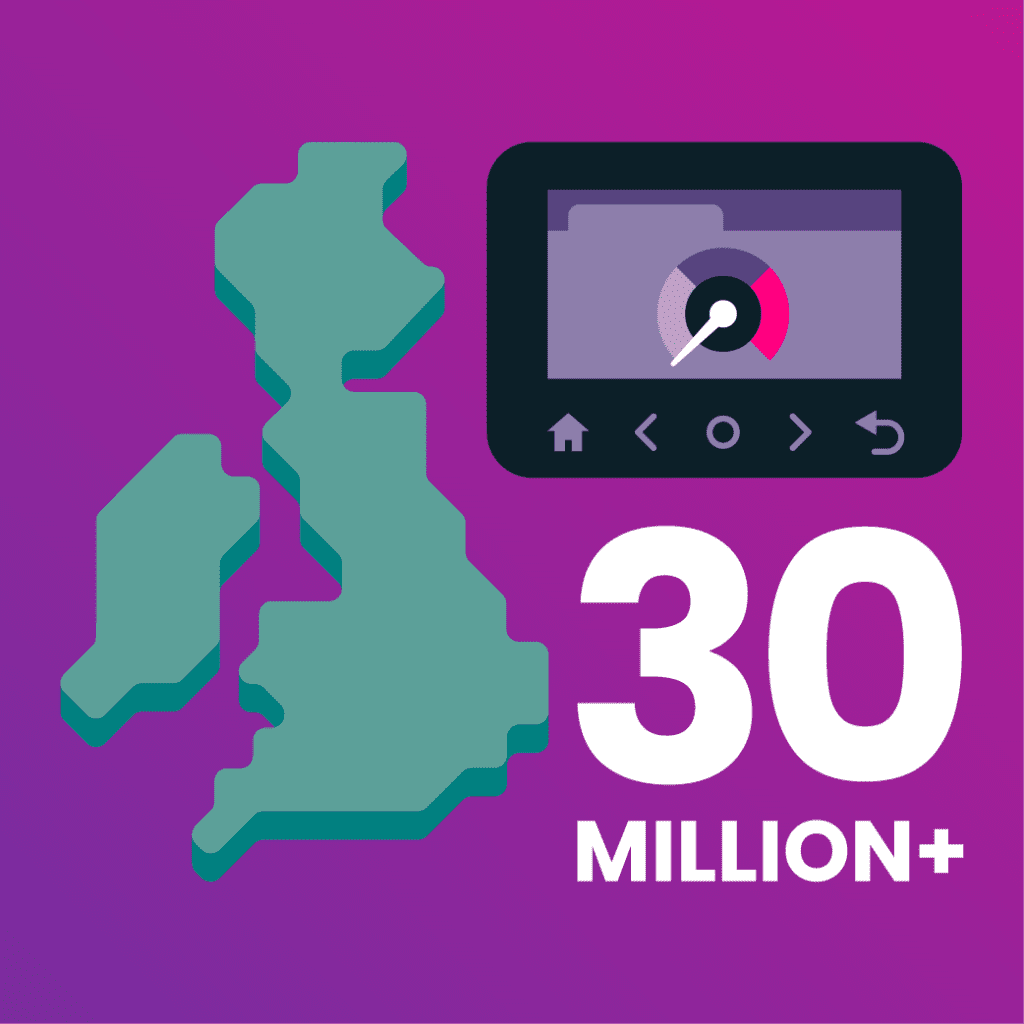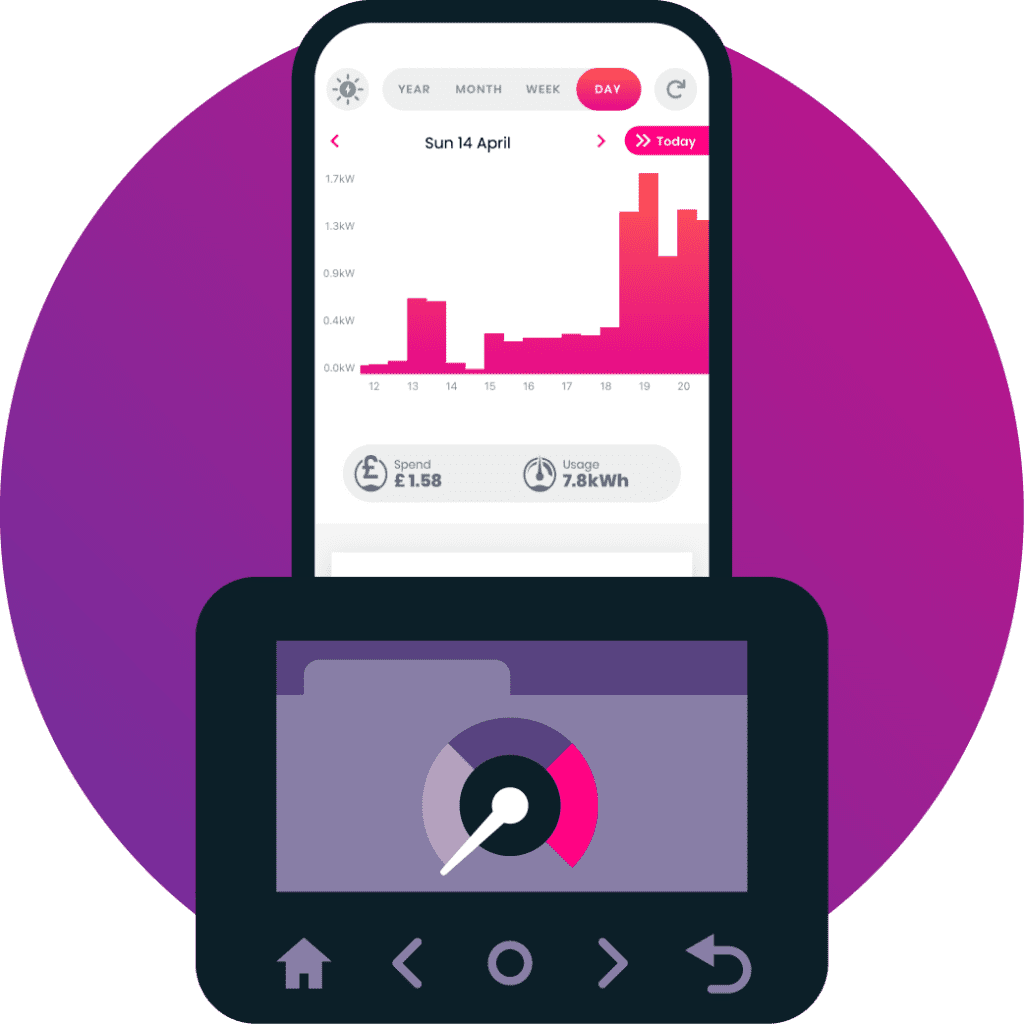Decoding Smart Meters: Weighing the Advantages and Disadvantages
Are smart meters worth it? Whether you’re contemplating the switch or seeking ways to maximise the benefits, these are the Pros and Cons of getting a smart meter.
Understanding Smart Meters
As the government aims for 80% of households to have a smart meter by 2025, the decision to embrace this technology becomes increasingly important. Smart meters are heralded as the future of energy management and promise to revolutionise how we use energy. However, the adoption in UK homes hasn’t been without its challenges. Before committing to a smart meter, it’s important to understand the pros and cons.
What is a Smart Meter?
Smart meters are a new era of gas and electricity meters, aimed to enhance the monitoring of energy demands from homes and businesses. With the transition to cleaner energy sources, like solar power, and the rise of electric cars, a more flexible energy system is essential for managing supply and demand.


How to Get a Smart Meter
Over 30 million smart meters have been installed across the UK so far. You can either wait for your energy supplier to contact you and arrange installation, or you can request one. The installation is free, and it comes with a small digital screen, called an in-home display (IHD), which links to your smart meter to show your live and past energy use and costs.
Advantages of a Smart Meter: A Gateway to Efficient Energy Management
Access to Diverse Energy Tariffs
Smart meters grant access to a wide array of tariffs, including specialised ones for EV users and households with solar panels, batteries and/or heat pumps.
Automatic Meter Readings
Bid farewell to monthly meter readings. Smart meters transmit readings directly to your supplier.
Real-Time Energy Monitoring
Observe your energy usage in real-time. It may sound simple, but seeing what you’re using and how much it’s costing can cut the amount of energy you use. It’s called the “feedback effect”.
Accurate Billing
Say goodbye to estimated bills. Smart meters ensure precise billing based on actual usage, eliminating discrepancies.
Environmental Impact Reduction
While not directly reducing carbon emissions, smart meters contribute to a smarter grid, facilitating the adoption of cleaner energy practices.
Benefit from Free Tech
The installation and display come at no cost, offering an opportunity to leverage free technology. When integrated with the free Loop app, smart meter households gain access to additional insights on their energy consumption.
Future-Proofing with Solar Panels
Smart meters become essential for those considering solar panel installation, ensuring accurate readings for the Smart Export Guarantee, an incentive for exporting excess solar energy.
Disadvantages of a Smart Meter: Navigating Challenges and Concerns
Legacy Issues with Older Smart Meters
Early smart meters faced issues when users switched energy tariffs, resulting in functionality loss also known as going ‘dumb’. However, second-generation smart meters have addressed this concern.
Not an Energy-Saving Solution Alone
While smart meters are excellent energy monitors, they require additional tools like Loop to support energy-saving efforts. A smart meter can only show you how much energy you’re using, not the ways to reduce it.
Privacy Concerns
Whilst there are some concerns that personal energy usage data could be passed to third parties, there are currently laws in place prohibiting energy suppliers from sharing this information without consent from the customer. It’s your data, you always have control.
Technical Faults
Like any technology, smart meters can encounter technical glitches. However, if you do get a technical fault and your smart meter can no longer give automatic readings, then you can go back to giving manual readings until it’s fixed. It is the responsibility of your supplier to fix the fault.
Smart Meter Lifespan
Smart meters need replacing every 10 years, adding a layer of maintenance that some users may find inconvenient. But with all the added functionality and technology, installing a smart meter can still be worthwhile.
Hidden Costs of Rollout
While the installation is free, the overall cost of the smart meter rollout is distributed among billpayers, so we’re all paying for it through our bills. If you don’t have a smart meter already, you’re paying for it regardless, so why not embrace the benefits?
Making Informed Decisions: The Smart Meter Guide
With millions of smart meters already installed and the rollout ongoing, the smart energy revolution is underway, offering homes a free way to take control of their energy bills.
Installing a smart meters is a step towards future-proofing your home, cutting your carbon footprint, and reducing your energy bills. By exploring complementary solutions like Loop, you can maximise the benefits further.







